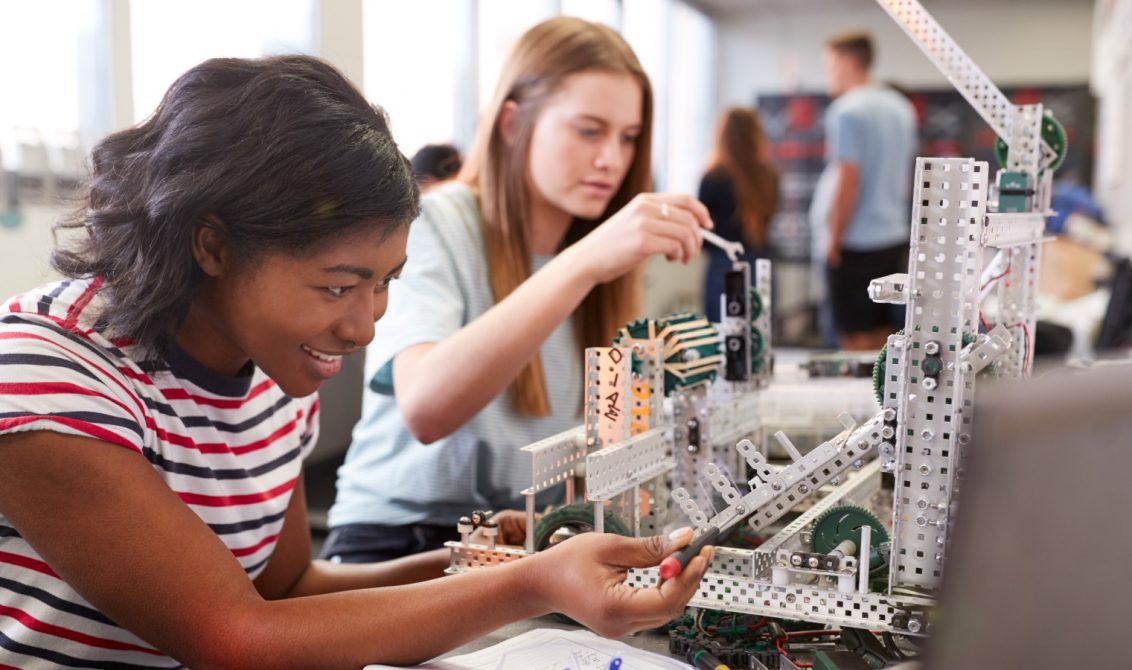 Kanchana Gupta is the founder of vLookUp and the Global Resource Management Lead at NCS Group Singapore, where she provides leadership, coaching and guidance across Singapore, India and Australia. She is an ardent believer of promoting gender diversity in the corporate world, especially in the tech industry.
Kanchana Gupta is the founder of vLookUp and the Global Resource Management Lead at NCS Group Singapore, where she provides leadership, coaching and guidance across Singapore, India and Australia. She is an ardent believer of promoting gender diversity in the corporate world, especially in the tech industry.
Over the years, Kanchana saw how women have limited access to leaders, hampering their ability to make the right connections, learn vital skills, and gain better opportunities. Her vision to democratize access related issues led to the creation of vLookUp (www.vlookup.ai), a digital mentoring platform that helps women find suitable mentors across countries, experience, and domains. Backed by robust technology, vLookUp is a platform built from scratch that has rapidly grown into a community of 171 mentors and 600+ mentees, spanning 11 countries, 120+ organizations.
In this article, Kanchana delves into the critical issue of the underrepresentation of women in STEM. She makes a case for embracing diversity and providing role models as it would not only help women thrive in STEM fields but enrich the overall technological landscape.
Read the full article here:
The underrepresentation of women in the fields of Science, Technology, Engineering, and Mathematics (STEM) and gender imbalance in STEM education and careers continues to be a critical issue, even in today’s era of technological advancement and digital transformation. Many studies have shown that one of the keyreasons for this gap is the lack of female role models. Having relatable and successful role models in these fields can strongly inspire and encourage young women to pursue STEM education and careers.
Despite significant worldwide efforts to bridge the gender gap in STEM, a nation as technologically advanced as India continues to face substantial gender disparities in STEM education as well as noticeable lack of female role models.According to the United Nations, a mere 14% of the 280,000 scientists, engineers, and technologists in India's research and development institutions are women. This lags far behind the global average of 35%. This imbalance likely stems from multiple factors, including the shortage of female role models within STEM fields.
Role models play a pivotal role in shaping aspirations and career choices, especially for women. A recent survey in India, conducted by the well-known global brand OLAY from P&G, provided clear evidence of this impact. The survey findings revealed a striking reality: a significant 81% of young women discontinued their pursuits due to the absence of female mentors or role models who could show them the path to success through their journey. Furthermore, the survey highlighted that 88% of participants believed that the presence of accomplished female role models in the workplace would strongly motivate them to rejoin STEM careers. An overwhelming 91% expressed the critical importance of having a female role model to sustain engagement in a STEM profession.
Although there has been an upward trend in girls pursuing higher education in STEM in India, the ratio of women entering the workforce in this field doesn't reflect the same. India presents a paradox here: it produces graduates but not as many researchers. When students, especially young girls, lack role models who are both relatable and inspiring, their enthusiasm for subjects traditionally dominated by males can wane. Incorporating mentors into the early stages of the STEM curriculum is crucial. Introducing these mentors at an early point will provide essential guidance for women to navigate their unique journeys in STEM.
For example, having successful and relatable role models in these fields can inspire women to aim for the same level of achievement. Such role models can help them defy gender stereotype associated with specific careers. Without role models, women, especially those entering the workforce might experience lower confidence and assurance crucial for pursuing STEM careers. This can also lead to feelings of isolation and reduced sense of belonging in these fields.
Addressing this gender gap requires a comprehensive approach such as fostering an inclusive environment from the beginning and providing access to mentor and role models. This involves creating a milieu in which accomplished women in STEM share their success stories with aspiring women leaders as well as creating access to mentors and mentoring sessions for emerging women leaders. Additionally, highlighting women's achievements in STEM and recognizing their successes through awards, articles, and focused media coverage not only showcases their contributions but also motivates others to embrace careers in these fields.
In essence, female role models hold a crucial role in motivating young women and girls to embrace STEM education and careers. Through showcasing accomplished women in STEM, recounting their journeys and insights, and offering mentorship, these role models can shatter stereotypes and demonstrate that successful careers in STEM are within reach for young women and girls.
Collaboration between industries and academic institutions can create targeted initiatives that offer financial support, guidance, and career avenues for women in STEM. Introducing performance indicators for women's involvement within research and development entities can help bridge the gap between academic achievements and career progress, effectively reducing disparities.
Furthermore, the participation of men and having them as allies is crucial to enhance the presence of women in STEM. Their support helps break down biases and promotes inclusivity, leading to impactful and lasting change.
Addressing the gender gap in STEM education is a necessity for India's inclusive advancement. Closing this gap demands a comprehensive strategy with contributions from all sections of the society, strategic actions, unwavering commitment, and a collective drive for gender equality.
Empowering women in STEM isn't only about numbers; it unlocks untapped potential for innovation and fairness. By embracing diversity and providing role models, India can nurture women who thrive in STEM, enriching the technological landscape. Without appropriate intervention and active discussions, STEM fields will persist with biases that reinforce gender stereotypes. As we shape an inclusive future, it's time to celebrate the accomplishments of current women in STEM, ensuring that every scientist, engineer, and technologist finds the motivation to transform their aspirations into reality.





 Kanchana Gupta is the founder of vLookUp and the Global Resource Management Lead at NCS Group Singapore, where she provides leadership, coaching and guidance across Singapore, India and Australia. She is an ardent believer of promoting gender diversity in the corporate world, especially in the tech industry.
Kanchana Gupta is the founder of vLookUp and the Global Resource Management Lead at NCS Group Singapore, where she provides leadership, coaching and guidance across Singapore, India and Australia. She is an ardent believer of promoting gender diversity in the corporate world, especially in the tech industry.


.jpg)










